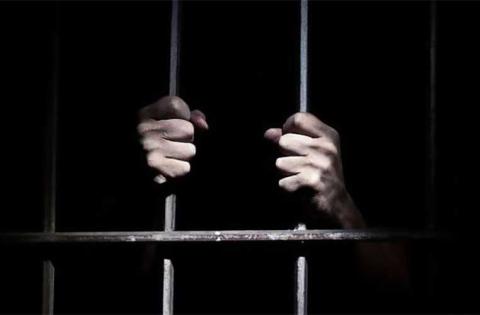RSS Pariwar Union Government in the Ministry of Home Affairs (MHA) has raised Government of India’s concern over the failure of States to implement the Model Jail Manual 2016 for bringing uniformity in the basic principles governing jails of the country. States and Union Territories have been advised to pay special attention to inmates inclined to propagating the ideology of radicalization and those with the propensity and potential to influence other inmates negatively. Radicalised inmates may be housed in separate enclosures to avoid influencing other inmates. Similarly, inmates in custody for offences of narcotics and smuggling of drugs also be lodged separately and not allowed to mix with other inmates, again to keep other inmates away from the influence of drug addicts. For both the categories, jail administration has been asked to organize on regular basis special deradicalisation and deaddiction sessions in all jails with the help of correctional and behavioural experts on regular basis. Guidelines in the Manual suggest that such steps will go a long way in bringing changes in the mindset of misguided criminals.
January 8, 2023 Guidelines of the MHA ask the States and Union Territories to ensure separation of various categories of prisoners like women, young offenders, under-trials, convicts, high-risk offenders and lodge them in jail separately to ensure safety and security of inmates. Deradicalisation is targeted especially against Muslim minority inmates who are almost one lakh in jails and are considered ‘jehadi terrorists’. Hence, persecuted by majoritarian RSS Pariwar Union Government and its ruled State Governments. In the dictionary of RSS Pariwar, all Muslims are ‘jihadi terrorists’, all liberal intellectuals ‘urban naxals’, all open minded and analytical students ‘tukde tukde gang’, all professional journalists as ‘Khan market gang’, by and large considering all of them anti-national to take on them, accordingly. National Crime Records Bureau (NCRB) compiles prison statics as reported by States and Union Territories and publishes the same in the “Prison Statics India”
According to the latest data of National Crime Records Bureau (NCRB) of 2021, Indian prison population has 77 per cent under trials, while only 27 per cent are convicts, with half of the under trials in prisons with more than two years. Out of a total of 5,54000 prisoners, 4,27000 are awaiting trials, of which 24,033 under trials are already in jail for three to five years. Occupancy rate for prisons is 130 per cent indicating overcrowdings. Seventy seven per cent under trial prisoners have been booked for petty crimes. They have either completed prison terms equivalent to the offences committed or nearing completion and some exceeded the terms of punishments for the targeted period of incarceration. A whopping 67 per cent of the inmates belong to OBCs, SCs and STs. Muslims constitute 18 per cent of prisoners forming the largest segments of religious minorities, much higher than their proportion of population. People of oppressed castes and Muslims together form 85 per cent of total prisoners. Total number of prisons in the country is 1,412 comprising 137 Central jails, 394 district jails, 732 sub-jails, 20 women jails, 20 borstal schools, 64 open jails, 42 special jails and three other jails.
Prisons in our criminal justice system have been given special importance as correctional institutions prompting the Government of India (GOI) to share important guidelines with States/Union Territories on varied aspects of prison administration to ensure uniformity in the basic principles governing jails in the country. Despite jails having been made correctional institutions following several commissions/committee recommendations for jail reforms, prisons are riddled with massive corruptions that include overcrowding, sub-human conditions of inmates, their ill treatments, sub-standard food, poor quality health care, corruption in procurement of goods and services for the prisoners. When the prisoners come out or are freed, they turn out to be hardened criminals simply because while in jails they were not allowed to enjoy human rights admissible to them in keeping with the Constitution of India and the Supreme Court directions!
